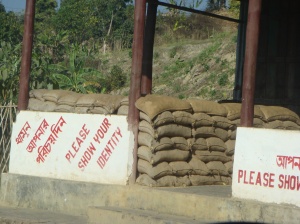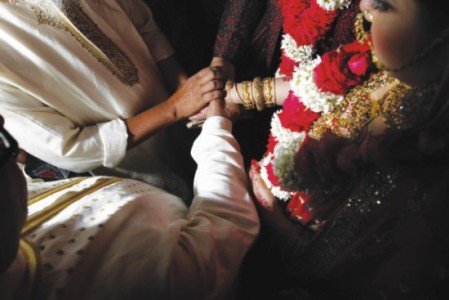
Hana Shams Ahmed
It was the previous Awami League government in 1997 that signed the historic CHT Accord in 1997, promising to end 25 years of guerrilla war in the Chittagong Hill Tracts. Unfortunately the government-encouraged settlement of poor Bangalis into the area, started in the 1980s, has never stopped therefore destabilising the situation 11 years after the signing. Most of the key provisions of the accord remained unimplemented in the last decade. The newly elected AL government has clearly mentioned in its election manifesto that they will take steps to fully implement the Peace Accord.
Hana Shams Ahmed
[STAR magazine, THE DAILY STAR, February 27, 2009]
Chittagong’s face-lifted Shah Amanat International Airport boasts ceramic artwork of various tourism selling points of Bangladesh. One of them shows a group of quaint-looking Pahari girls doing a traditional dance. Next to it is another Pahari girl in a traditional pinon picking leaves from a hill in the Chittagong Hill Tracts. The depiction of Pahari girls as part of our cultural heritage has always been used to attract national and international tourists. Unfortunately how the common Pahari girls are living their lives seems to be hardly of concern. The Chittagong Hill Tracts is the only place in the entire country (except for the Cantonment areas) where the army still remains with nearly six brigades of approximately 35,000 army personnel.
Read the rest of this entry »



 Posted by hanashams
Posted by hanashams 


You must be logged in to post a comment.